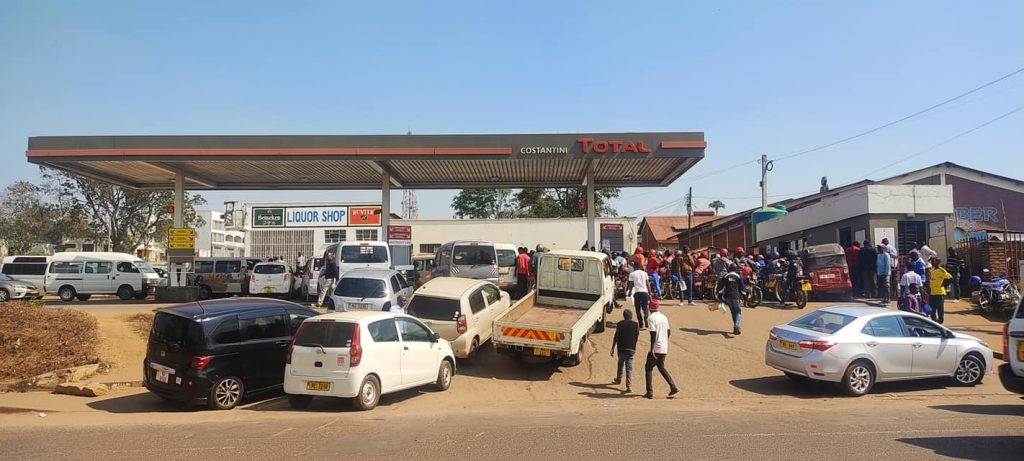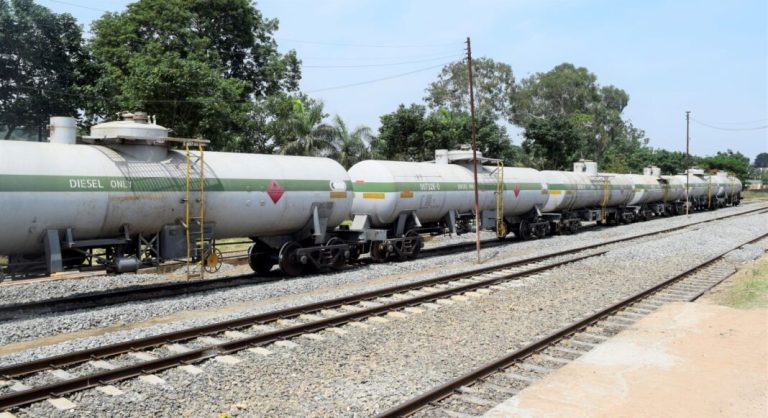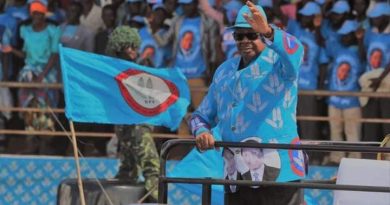Malawi’s self-made fuel crisis bites
By Nelson Nyirenda*
Malawi is facing a growing fuel shortage crisis, one that has caused widespread disruptions to daily life, business operations, and economic activities. At the heart of the issue lies a complex interplay of factors, but at its core is the chronic shortage of foreign exchange (forex) that the country is facing. Despite having access to fuel, Malawi lacks the financial resources to import it in sufficient quantities.
Fuel is a critical component of Malawi’s economy. It powers transportation systems, agriculture, industries, and even energy generation. In a landlocked country like Malawi, where infrastructure is underdeveloped, fuel is especially vital for facilitating imports and exports. Yet, in recent months, fuel shortages have become increasingly common, leading to long queues at petrol stations, rising fuel prices, and an overall sense of uncertainty.
On the surface, the shortage appears to be a logistical issue – there is simply not enough fuel reaching Malawian markets. However, a deeper analysis shows that the root cause of the crisis is a severe lack of forex, which has resulted in an inability to import the necessary volumes of fuel from international suppliers.
While the country theoretically has access to fuel supplies, the lack of sufficient foreign currency to pay for these imports has led to rationing and supply delays. The normal pump price of K2,530 for petrol and K2,734 for diesel but many have had to buy it at more than twice the price from illegal traders who thrive during such times.
The Malawi Energy Regulatory Authority (MERA) has identified the black market as a major disruptor in the legal fuel distribution network. Fuel intended for regulated service stations is being diverted and sold illegally by vendors, at inflated prices, driving up scarcity at legitimate retail points and pushing more consumers toward unregulated sources.
Motorists have been spending days and nights on fuel queues just to get a rationed 20 litres of fuel per customer. To many, especially those in passenger services like minibuses and motorcycle taxis, they had two options- park their car or motorcycle, or but the same fuel on black market at as high as K6,000, and pass on the cost to the commuter by doubling the fares.
The forex crisis and its impact on fuel imports
The shortage of foreign exchange has become one of the most pressing economic challenges in Malawi. Forex is essential for purchasing goods and services from abroad, including fuel, food imports, machinery, and raw materials. However, the country has faced a persistent forex shortfall due to several factors, including low export earnings, high debt servicing costs, and limited foreign direct investment.
Malawi is primarily an agricultural economy, and its exports – mainly tobacco, tea, and sugar -are heavily dependent on the global market. The global decline in demand for tobacco, one of Malawi’s largest export commodities, combined with fluctuating international prices for agricultural products, has significantly reduced the country’s forex inflows. Additionally, the country’s external debt burden has been rising, placing further strain on its foreign reserves.

Chaotic scenes at a filling station
In the case of fuel, the Malawian government relies on foreign currency to purchase petroleum products from international suppliers, mainly through the port of Beira in Mozambique. However, due to the forex shortage, oil marketers in Malawi have had difficulty securing enough currency to meet their import needs. This has led to reduced fuel imports, resulting in shortages, which have caused long queues at petrol stations, price hikes, and disruptions to transportation and other sectors that rely on fuel.
The impact of this crisis is far-reaching, not only for companies and the government, but for charitable organizations and the communities they support. This creates significant challenges for organizations and businesses that depend on reliable fuel access to transport goods and provide essential services, food, and resources to those in need.
For families already grappling with financial difficulties, the rising fuel prices and limited transportation options exacerbate daily hardships, making it even more difficult to access basic necessities and healthcare.
The fuel crisis also significantly affected the generation of electricity by Egenco, which uses diesel generators to boost power supply, which results in frequent blackouts and power rationing.
The inadequate power supply furthers results in reduced production in the manufacturing sector since they also depend on power supply from the Electricity Supply Corporation of Malawi (ESCOM), which is served by Egenco. Even those with standby generators could not function when the fuel pumps run dry.
One factor that has been highlighted in discussions surrounding Malawi’s forex crisis is the high cost of external travel by the executive and government officials. Malawi’s leadership, particularly the President and top government ministers, have been accused of engaging in excessive foreign travel, often to attend summits, conferences, and meetings that do not seem to have a direct or immediate benefit to the country.
Such travel requires significant expenditure on flights, accommodation, and other logistics. These funds, which could otherwise be directed toward purchasing fuel or bolstering the country’s foreign exchange reserves, are often seen as a drain on the country’s limited resources. Critics argue that, in the midst of a forex crisis, the government should reconsider the frequency and scale of its foreign trips.
The government’s external travel expenses come at a time when Malawi is also struggling with growing domestic needs—education, healthcare, infrastructure development, and poverty alleviation. A more prudent approach to spending could free up valuable forex for critical imports like fuel, thus easing the fuel shortage.
Corruption and governance challenges
Another significant factor contributing to Malawi’s fuel crisis is corruption and mismanagement of state resources. Corruption undermines the country’s economic stability, contributing to the erosion of public trust and inefficient allocation of resources. In the fuel sector, there have been instances of fuel being diverted for illegal resale, fuel hoarding, and inflated pricing. This corruption within the fuel distribution network worsens the shortage, exacerbating the already tense supply situation.
Malawi’s public sector, like many others in sub-Saharan Africa, has struggled with inefficiency and corruption. Public officials, including those in the fuel importation and distribution chain, have often been accused of siphoning off funds meant for critical imports or accepting bribes to divert fuel to the black market. Addressing this systemic corruption could help to ensure that resources are used for their intended purpose—importing the fuel necessary to keep the economy running smoothly.
Efforts to combat corruption, such as stronger enforcement of anti-corruption laws, transparency in government spending, and more stringent auditing mechanisms, could go a long way toward resolving the fuel crisis. The government must show decisive action in tackling corruption to restore investor confidence and improve the efficiency of fuel importation and distribution.
Alternatives in fuel haulage
Another factor that usually contributes to the fuel problems concerns the choices the nation makes when it comes to the routes for importing the precious commodity.
According to Malawi Energy Regulatory Authority (MERA), Malawi imports around 600 million litres of petroleum per year from around the world. The majority of this comes in through Beira in Mozambique, by road to Malawi.
Malawi’s dependence on the Beira route for fuel imports has exposed the country to the risks of transportation delays and high costs. The cost of transporting fuel from Beira to Malawi by road is relatively high, with estimates suggesting that road transport costs around $300 per metric ton. The poor condition of the roads and congestion at border posts further increases transportation delays and costs.

Railway offers a cheaper and efficient route to the port of Nacala in Mozambique
On the other hand, experts recommend the use of Nacala Corridor and railway transport. The Nacala Corridor, which includes a rail link from northern Mozambique into Malawi, offers a cheaper and more efficient route for transporting goods, including fuel. The cost of rail transport is approximately not more than half the cost of transporting the same via Beira.
The government would also consider development of Northern Corridor (Dar-es-Salaam) which connects to the Tanzanian port of Dar-es-Salaam, could offer another viable route for fuel imports. The only challenge with this corridor is that the transport infrastructure is underdeveloped and would require significant investment to become a competitive alternative to Beira.
Long term solutions to the fuel crisis
While addressing the fuel shortage in the short term is critical, long-term solutions will require a combination of economic and infrastructure reforms.
Top on the agenda should be reducing non-essential government foreign travel starting with the president and the ministers, in terms of the number of trips as well as the number of people per trip. This could help save forex and redirect resources to critical imports like fuel.
Looking at Malawi’s budget deficit of around K1.6 trillion, it is clear that the only way to keep the government machinery running is to borrow, further adding to the debt burden is hovering around K14 trillion. The public purse cannot afford to finance external trips with bloated entourages and then at the same time support fuel purchases that depend on the taxes which are already dwindling due to low productivity in the private sector.
It is also incumbent upon the government that it addresses corruption. Stronger enforcement of anti-corruption measures and greater transparency in the fuel importation and distribution sector could ensure that resources are used efficiently.
Malawi risks being a laughing stock amongst its neighbours should the government fail to address the recurring fuel shortages, when the country has intelligent and able people to solve the conundrum. This will further drive the poor into the poverty trap.
*Nyirenda is a media trainer at Blantyre International University (and Malawi Institute of Journalism – part-time), writing in his personal capacity.




